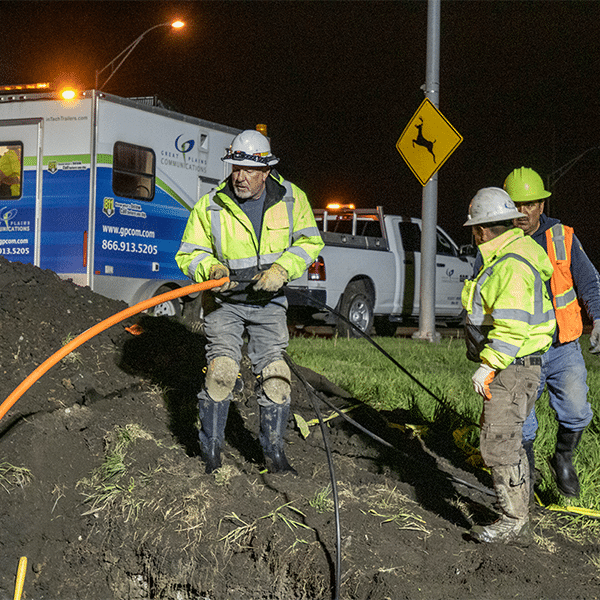Great Plains Communications is one of a growing number of tier 2 and 3 providers with long-term roots that has been acquired by an investment firm, a move that has helped the company expand rapidly. Telecompetitor talked with Great Plains Communications CEO Todd Foje about this recently.
The company was founded more than a century ago by E. C Hunt in Blair, NE, as a rural telephone company. Over the years, it grew to become Nebraska’s largest privately owned telecommunications provider.
In 2018, the family sold the business to investment firm Grain Management.
The company has now expanded its 9,500-mile fiber network to 18,000+ miles in 13 states, offering customers a robust portfolio of services that include traditional residential/commercial internet service, business services, services to both multi-dwelling units and greenfield developments, and carrier services. Since Grain Management bought the company, Great Plains Communications has made five separate acquisitions that have been pivotal to its growth.
“Our differentiator is service. The quality of the experience,” Foje told Telecompetitor. “We have a high-performing network with high-performing people.”
Foje spoke to Telecompetitor on the heels of several additional expansion announcements. The company is expanding its service footprint to the southeastern Indiana communities of Aurora and Vevay. Construction will begin by mid-fall and will deliver fiber internet services to both residences and businesses. Partial funding will be provided by Indiana’s Next Level Connections (NLC) Broadband Grant Program.
In Nebraska, the company announced two more expansions. In July, it said it had received $11M from the Nebraska Public Service Commission to bring fiber-to-the-home and business services to eight Nebraska markets. Then, earlier this month it announced that it will bring state-of the art fiber services to 16 urban and rural communities, with construction beginning in all communities by late fall.
Many of the communities soon to be served by GPC are best described as “underserved” – with major upgrades needed to the local facilities and infrastructure to deliver high-speed internet service.
Foje attributes the company’s success in receiving grants to the fact that GPC has a long, successful track record working with government entities and officials.
Great Plains Communications has “a long history of successful private/public partnerships,” Foje told Telecompetitor, “and we view policymakers and government officials as business partners. “We find ways to work with them and leverage receptive communities with our own capital to deliver the best in internet services for our communities.
“We’ve been in business a long time,” he continued. “Government officials have the confidence that any project we undertake will be done – and done well. We are going to carry through on our commitments and take care of customers, or as government officials might see them, taxpayers and voters.”

Moving forward, Great Plains Communications will focus on further expansions in Nebraska, Indiana and Colorado. The criteria for expansion, explained Foje, include proximity to current business operations, market demand and a scarcity of local fiber internet service providers (ISPs). GPC believes the number of fiber ISPs a community can support is typically no more than two. Of course, the cost of construction, as well as receptiveness of local government officials, also plays a major role in GPC’s expansion decisions.
Recent network upgrades of many routes to 400 Gbps have enabled GPC to upgrade its residential service offerings in many of its markets to 2 Gbps to stay ahead of customer demand. Available service speeds and pricing, however, vary from one market to another.
“We try to be forward-thinking,” Laura Kocher, Great Plains Communications vice President of marketing and public relations, said. “With more and more working and learning from home as well as smart devices, we want to be ready for our customers when they need that extra bandwidth.”
“Ultimately,” Foje said, “our story is one of a century-old rural telephone company that has successfully pivoted to a modern, regional, fiber-based broadband provider that is successfully competing on a multistate basis.”



